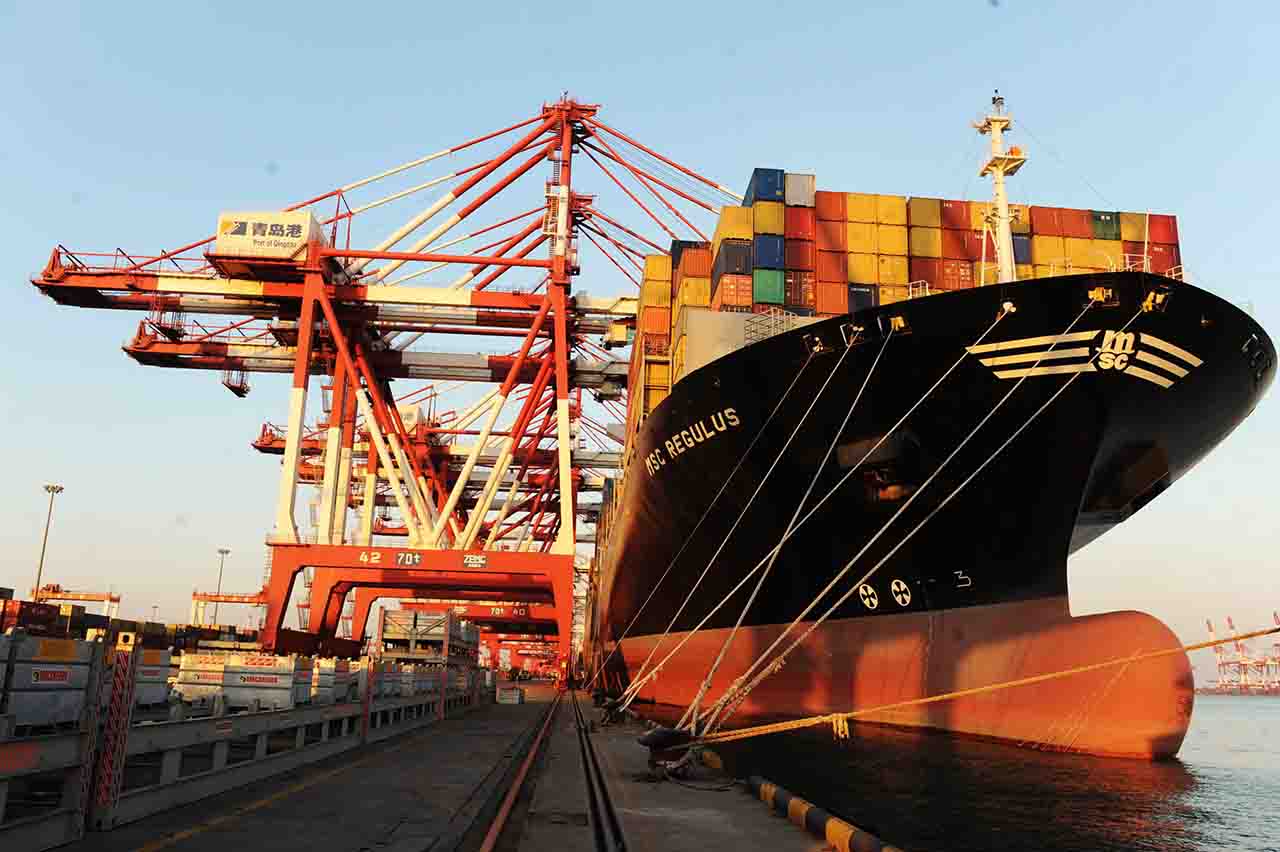(Commonwealth) _ New Zealand’s shipping industry has been adapting to meet the environmental challenges that it faces, such as reducing carbon emissions and minimizing the impact of shipping on marine life. The country is home to many ports, and it relies heavily on shipping for its economy. Therefore, the industry’s efforts to address environmental concerns are essential for New Zealand’s sustainable development.
The shipping industry has been a significant contributor to global carbon emissions. However, New Zealand’s shipping industry has taken a proactive approach in reducing its carbon footprint. One example of this is the introduction of low sulfur fuels for ships, which emit less sulfur dioxide, a harmful air pollutant. In 2020, New Zealand also became the first country in the world to require all its ships to use low sulfur fuels within its exclusive economic zone (EEZ). This move is part of the country’s commitment to reduce its greenhouse gas emissions by 30% below 2005 levels by 2030.
Another significant environmental challenge that the shipping industry faces is the impact of shipping on marine life, such as the introduction of invasive species and noise pollution. To address this issue, the New Zealand government has introduced the Biofouling Management for Ships regulation, which requires all ships entering New Zealand to have a clean hull, free from marine pests and other invasive species. This regulation helps protect New Zealand’s marine ecosystems from invasive species, which can have devastating impacts on native species.
New Zealand’s shipping industry has also been working to reduce noise pollution, which cadisrupt marine life and affect their behavior. Shipping companies have been implementing measures to reduce noise, such as the use of quieter propulsion systems and reducing vessel speed in sensitive areas. These measures help minimize the impact of shipping on marine life, ensuring that New Zealand’s marine ecosystems remain healthy and thriving. New Zealand’s shipping industry has also been working to promote sustainability through the use of renewable energy. For example, a number of ports in New Zealand are exploring the use of renewable energy sources, such as wind and solar power, to power their operations. This move towards renewable energy helps reduce the industry’s reliance on fossil fuels, further reducing its carbon footprint.
Another important aspect of the shipping industry’s sustainability efforts is waste management. New Zealand’s shipping industry has implemented measures to reduce waste generation and increase recycling. For example, many ports have recycling facilities for waste generated by ships, such as plastics and packaging materials. This waste management strategy helps reduce the amount of waste that ends up in landfills, promoting a circular economy.
The shipping sector in New Zealand has been making efforts to increase environmental reporting and transparency. Government reporting requirements apply to shipping businesses’ emissions and other environmental effects, such as trash production and fuel use. This reporting encourages more industry openness and helps identify areas for development. New Zealand’s shipping industry has been working to address the environmental challenges it faces, such as reducing carbon emissions, minimizing the impact of shipping on marine life, promoting sustainability through the use of renewable energy, waste management, and improving environmental reporting and transparency. These efforts are essential for New Zealand’s sustainable development and ensure that the country’s marine ecosystems remain healthy and thriving. As the shipping industry continues to evolve, it is critical that it continues to prioritize sustainability and environmental responsibility.








